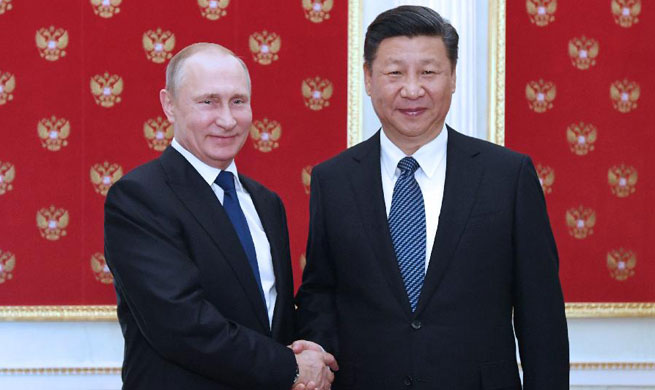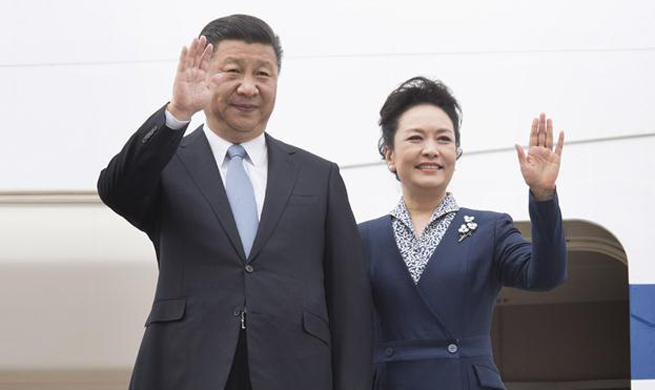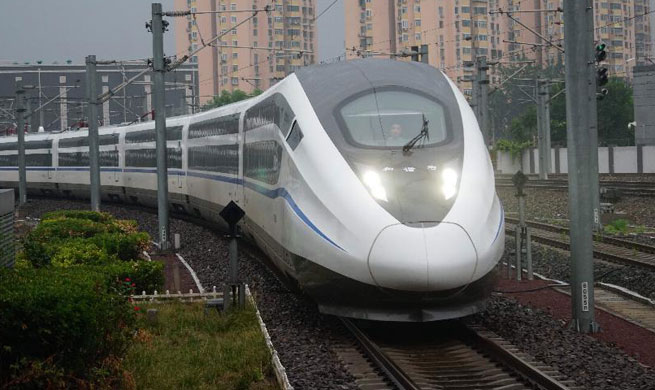NAIROBI, July 4 (Xinhua) -- Kenya stands to gain significantly from stronger economic growth of regional partners, as it can take advantage of increased demand from these economies, says a report launched on Tuesday by an international accountancy and finance body.
The report by the Institute of Chartered Accountants in England and Wales (ICAEW) finds that Nairobi is positioned to take advantage of rising demand for manufactured goods, while the country's location and relatively developed transport infrastructure will allow Kenya to act as the gateway into the East Africa region.
"The East Africa Community (EAC)'s infrastructure development strategy still largely depends on improving the efficiency of imports to the region through Mombasa, from which Kenya can be expected to gain," the report says.
The report reveals that EAC members accounted for a fifth of total Kenyan exports in 2016.
According to the report, the African continent accounted for 41 percent of Kenya's exports in 2016 while Europe and Asia each accounted for approximately a quarter of total exports.
The study finds that Uganda held the position of Kenya's largest single export destination accounting for 11 percent of total exports during 2016.
The report, commissioned by ICAEW and produced by partner and forecaster Oxford Economics, provides a snapshot of the region's economic performance.
The report focuses specifically on Kenya, Tanzania, Ethiopia, Nigeria, Ghana, Ivory Coast, South Africa and Angola.
The East African nation has been relatively successful in diversifying its exports and building up a strong manufacturing base. Agricultural products such as tea and flowers made up the bulk of exports.
"As the most sophisticated economy in East Africa, it stands to gain considerably from deeper regional economic integration, benefiting from strong economic growth in regional peers, exporting both goods and services to these economies," says the report.
However, whilst the country has an advantage in terms of value-added compared to regional African peers, this story is not replicated beyond Africa.
Receipts from tea and flowers are largely determined by factors such as global commodity prices and domestic weather conditions (affecting production), and not necessarily the state of world trade.
The EAC is considered the most progressive trade bloc in Africa. Collaboration on regional infrastructure has reached a level rarely seen on the continent with construction of the 26 billion U.S. dollars Lamu Port - Southern Sudan - Ethiopia Transport (LAPSSET) corridor underway.
A Single Customs Territory (SCT) system will take effect across the EAC from July 31, facilitating trade between member states by electronically connecting countries' custom clearance systems.
A pilot program involving certain goods and entry points has generated positive results, and if implemented successfully, the SCT could significantly stimulate trade in the region by reducing the cost of doing business.
However, the bloc is not without its challenges as the United Nations Economic Commission for Africa (UNECA) recently cautioned against the signing of the Economic Partnership Agreement (EPA) between the EAC and the European Union (EU) in its current form, which does not bode well for the EPA's implementation.
Kenya stands to lose the most without the agreement as it is not classified as a least-developed country, it would not receive duty-free and quota-free access under the EU's Everything-But-Arms initiative.

















